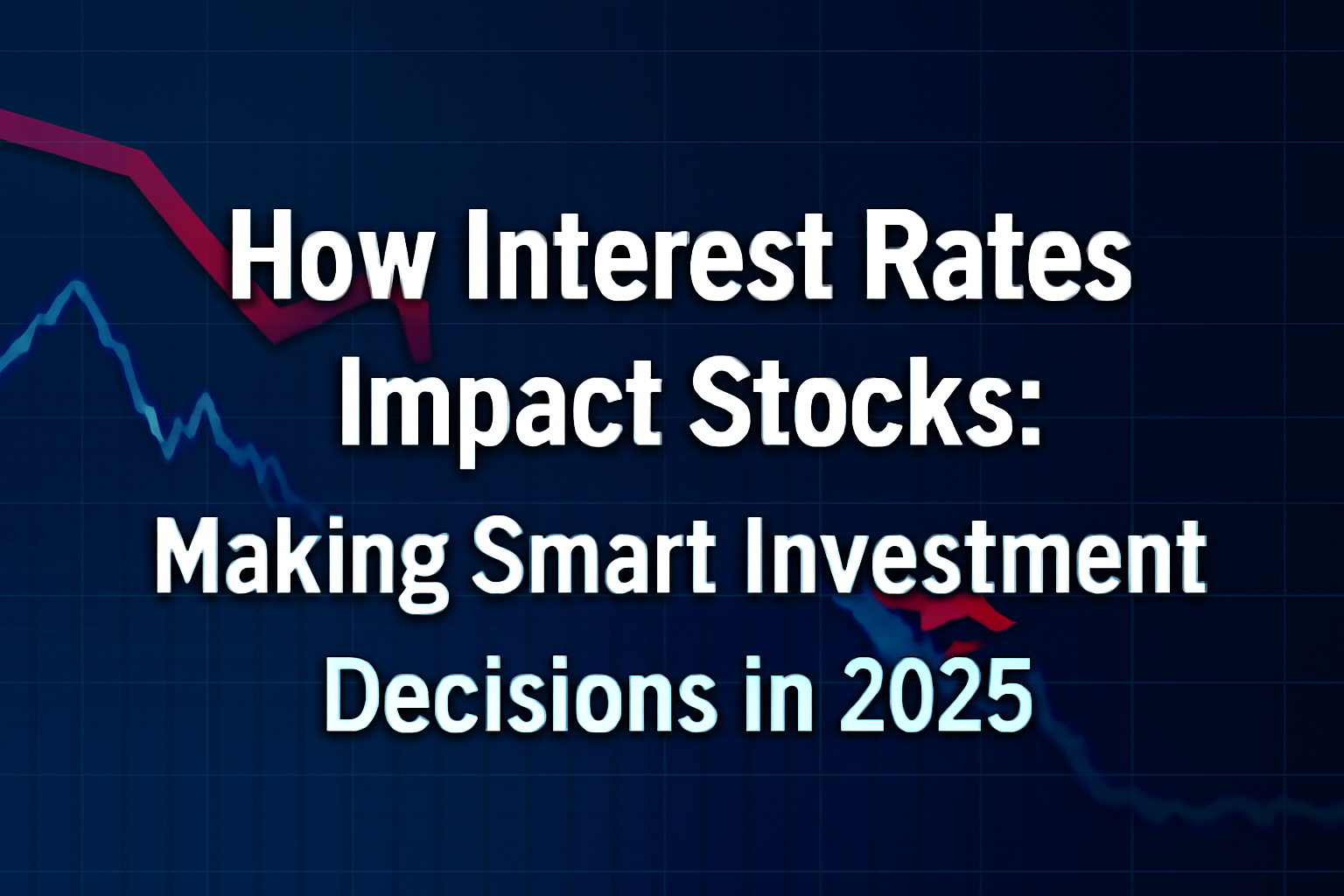Summary: With interest rates continuing to influence market behavior, investors must understand how these changes can affect stock prices. Here’s a breakdown of why this matters and how to navigate these shifts.
📉 The Interest Rate Hike and Its Impact on the Stock Market
Interest rates have been a central focus in financial discussions over the past year. The Federal Reserve has raised rates multiple times in an attempt to curb inflation and stabilize the economy. As of mid-2025, the federal funds rate stands at 4.25% to 4.5%, which is a significant jump from historical lows. This increase directly impacts the stock market in various ways, both in the short term and the long term.
Higher interest rates make borrowing more expensive for businesses and consumers. For companies, this translates into higher operating costs, potentially leading to reduced profit margins and a decrease in stock prices. On the other hand, higher rates can also make government bonds more attractive to investors, drawing capital away from riskier assets like stocks.
💡 Why This Matters to Investors
For investors, understanding how interest rate changes affect different sectors is crucial. Historically, interest rate hikes tend to have a more significant impact on growth stocks, particularly in the technology and consumer discretionary sectors, which rely heavily on cheap financing for expansion and operations. These stocks often see a decline in value when interest rates rise because their future earnings are now less valuable in the present due to higher discount rates.
Conversely, dividend-paying stocks in sectors like utilities, healthcare, and consumer staples might fare better in an environment of rising interest rates. These sectors typically have stable earnings and can continue to generate consistent returns for investors even when borrowing costs increase.
🔍 Analyzing the Market’s Reaction
In the aftermath of the Fed’s recent rate hikes, the stock market has experienced increased volatility. While some investors are cautious, fearing a slowdown in economic growth, others are taking advantage of potential buying opportunities in undervalued stocks. However, the key takeaway is that interest rates are not static—they are influenced by economic data and market expectations. For example, if inflation continues to remain high, the Fed may further increase rates, causing more volatility in the market.
It’s important to keep a close eye on economic reports such as GDP growth, inflation figures, and unemployment rates, as these factors influence the Fed’s decision-making process. Investors should be prepared for changes in the market and adjust their portfolios accordingly.
📊 What This Means for Your Portfolio
So, how should you respond as an investor? The most important thing is to stay informed and be prepared to adjust your investment strategy. Here are a few tips for managing your portfolio during periods of rising interest rates:
- Diversify Your Investments: Having a mix of stocks, bonds, and other assets can help you manage risk. Consider including dividend-paying stocks and sectors that typically perform well during interest rate hikes.
- Focus on Strong Fundamentals: Invest in companies with solid fundamentals, low debt levels, and stable earnings. These companies are better equipped to handle rising borrowing costs.
- Consider Bond Alternatives: With rising interest rates, long-term bonds may lose value. Consider shorter-duration bonds or dividend-focused ETFs as alternatives.
- Monitor the Fed’s Actions: Stay up to date on Federal Reserve meetings and statements. Understanding the central bank’s approach will give you insight into the future trajectory of interest rates.
Conclusion: Interest rates play a significant role in shaping stock market dynamics, and understanding their impact is crucial for making informed investment decisions. By focusing on diversification, strong fundamentals, and staying informed about the Fed’s actions, you can navigate the challenges of rising interest rates and position your portfolio for long-term success.







Leave a Reply